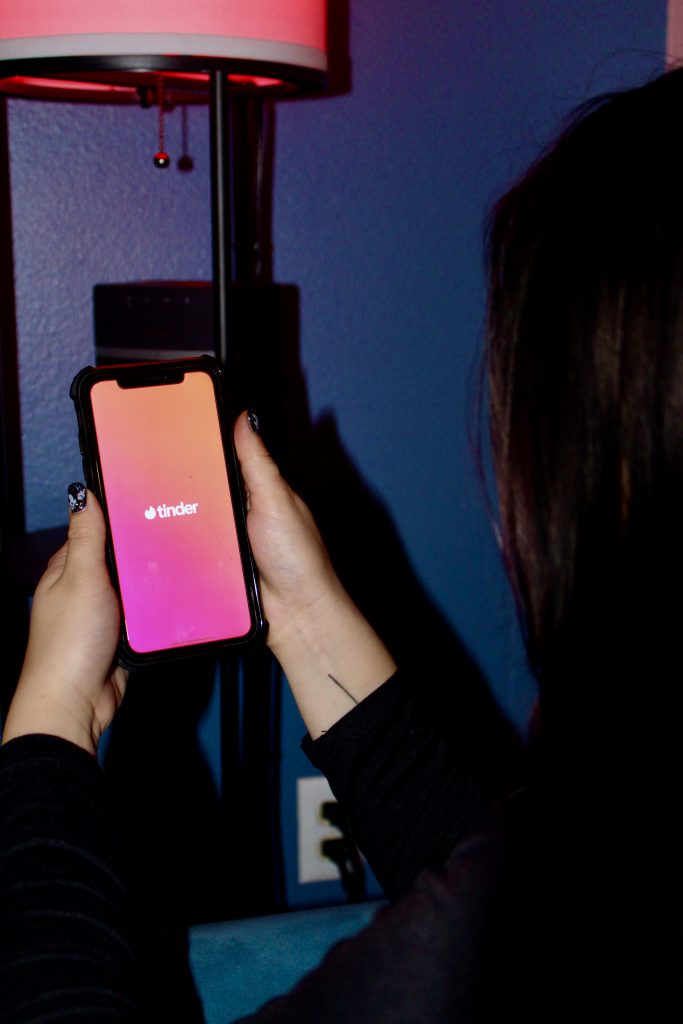When Wifi Replaces Romance
Share

In the era of Tinder, Bumble, and Match among a plethora of other platforms you’d think finding the one, or at least a cuddle partner would be ridiculously easy. The digital age gives us the illusion that the global population is at our fingertips. Distance is not a discouraging factor for many people. The sky is no longer a limit to romantic attraction– we have planes now. Not to mention, the Internet enables us to Facetime, Skype, or Zoom call people who live farther than the naked eye can see.
However, despite these platforms that even the laziest people on the planet can use, overall engagement in romantic relationships is declining. It’s not merely that people are substituting one kind of relationship for another: marriage for co-habitation, or opting for situation-ships over established relationships; it’s that people are replacing relationships with no relationship. We are progressing farther in digital communication yet are growing more distant from one another. Is it that we have traded relationship for the absence of it as Brooks concludes? Or is it that we have exchanged real connection for a wi-fi induced one?
I am a junior at a private, liberal arts university called–you guessed it–Southwestern. I’ve never had a boyfriend, from this school at least. Our school population is a whopping 1500 people; you know that platitude that says “there’s lots of fish in the sea,” well I thought my loveless college career had to be because I didn’t fit in with the rest of the fish— haha I’m quirky. However, it appears that college singleness is a perpetuating phenomenon. I have noticed that a majority of people my age aren’t interested in committed romantic relationships. The ones that are in a committed relationship are dating people that are older and out of college.
It turns out that I am not the only one who has noticed a pattern of disinterest in romantic involvement. Harvard professor Arthur Brooks’ found this pattern as well. So I went around SU campus asking students whether they think people’s interest in romantic relationships is declining and if so why. Here is what they said:
Logan Ferguson, a junior, believes that young people’s collective interest in romantic relationships is decreasing due to the media placing a greater emphasis “on sexual relationships rather than romantic ones…It started with movies and as the years went on TV shows and movies became more and more sexual. Now social media has brought this to a whole new level. Sex is more glorified than romance.” These media depictions pressure people into thinking a man who has sex is ‘powerful’. Meanwhile, it suggests that men who are romantic are ‘simps.’”
Sophomore Lukas Silvius says: “I believe that society’s perceptions of relationships and of what is expected within the premise of sex/love is ever-changing. And in recent decades, the social perspective and the importance people place on love is much less than in previous generations…the presence of religion in people’s lives affects this. Modern culture has slowly veered away from religious affiliation.” Lukas believes that this has resulted in a culture centered around hookups and notes that, “people are getting married later in life and having fewer kids than they did 50 years ago.”
Senior Emma McCandles assumes that this may be because, “everything is too expensive for young people so we are waiting to settle down until our 30s.”
When I asked Daniel Guandique, junior, for his input, he swiftly replied that the reason people may be apprehensive to jump into a committed relationship can be summed up in “two words: commitment issues.”
Iris Dannelly, junior, bounced off of Daniel’s theory that our generation harbors ever-increasing commitment fears. She reported that, “It’s not modernized in this generation to be in a committed relationship with someone, [to] get married, and have kids…”
The interviewee’s responses display that the root to the pattern of declining committed relationships is complex and multi-faceted. However a contributor everyone can agree upon is that the media pushes “hook-up culture” as the relational ideal. There appears to be a generational epidemic of commitment issues whether this is caused by financial pressures or stems from FOMO… (this stands for: fear of missing out but you probably knew that already…)
I am no psychologist or ivy-league professor. However, I am a participant in a platonic college experience. I believe that the reason such a small number of students are in committed, romantic relationships is influenced by social media. Our phone screens have become a window offering us a plethora of options. These copious options have rendered us incapable of committing to just one person (that’s where the FOMO comes in). The Internet has destroyed the obstacle of distance enabling us to meet more people than we normally would in our day-to-day lives. This blessing becomes a curse when our abundance of choices disables us from selecting one person and investing in them. In an overtly reductionist fashion, people have become simplified to boxes in the grocery store cereal aisle. I mean, how can I be expected to pick just one when there are so many flavors to choose from?
Aside from FOMO, I believe that social media offers people a high quantity of shallow relationships, which deceives people into feeling emotionally satisfied. For instance, I can message one person on Bumble and receive emotional fulfillment, and swipe right on tinder to find physical satisfaction. Then, I can turn off my iphone and go to dinner with the people I actually want to spend my life with. To be cynical, social media enables people to use each other with no strings attached.

There’s no question that the amount of people invested in romantic relationships is declining. However, whether this statistic is beneficial to our generation or not is another debacle. On the one hand, people are becoming more financially secure before starting families. On the other hand, loneliness, depression, and anxiety are becoming a ravaging epidemic in our generation. Social media causes us to trade a few deep relationships for plenty of shallow ones; this is due to the illusion that our high quantity of Instagram followers can satisfy our innermost needs. There is an obvious correlation between our increasing situationships and declining mental wellbeing. But deeper relationships require time, effort, commitment, and trust—all things our generation fears.Whether romantic or platonic I believe the key to improving our collective mental state is investing in deeper relationships despite our fears. It’s easy to get on dating apps to satisfy loneliness because there’s a phone screen masking our vulnerability. However, next time you feel the depressing urge to feeling dump on an anonymous app, or Instagram-induced FOMO washes over you and you’re tempted to start Tinder swiping, examine the people who are already in your life. You’re only in college once. Don’t trade your friends for a Tinder date you end up regretting. It’s worth it to deepen connection with them rather than chase a cheap, wifi-induced one.

Very good article.